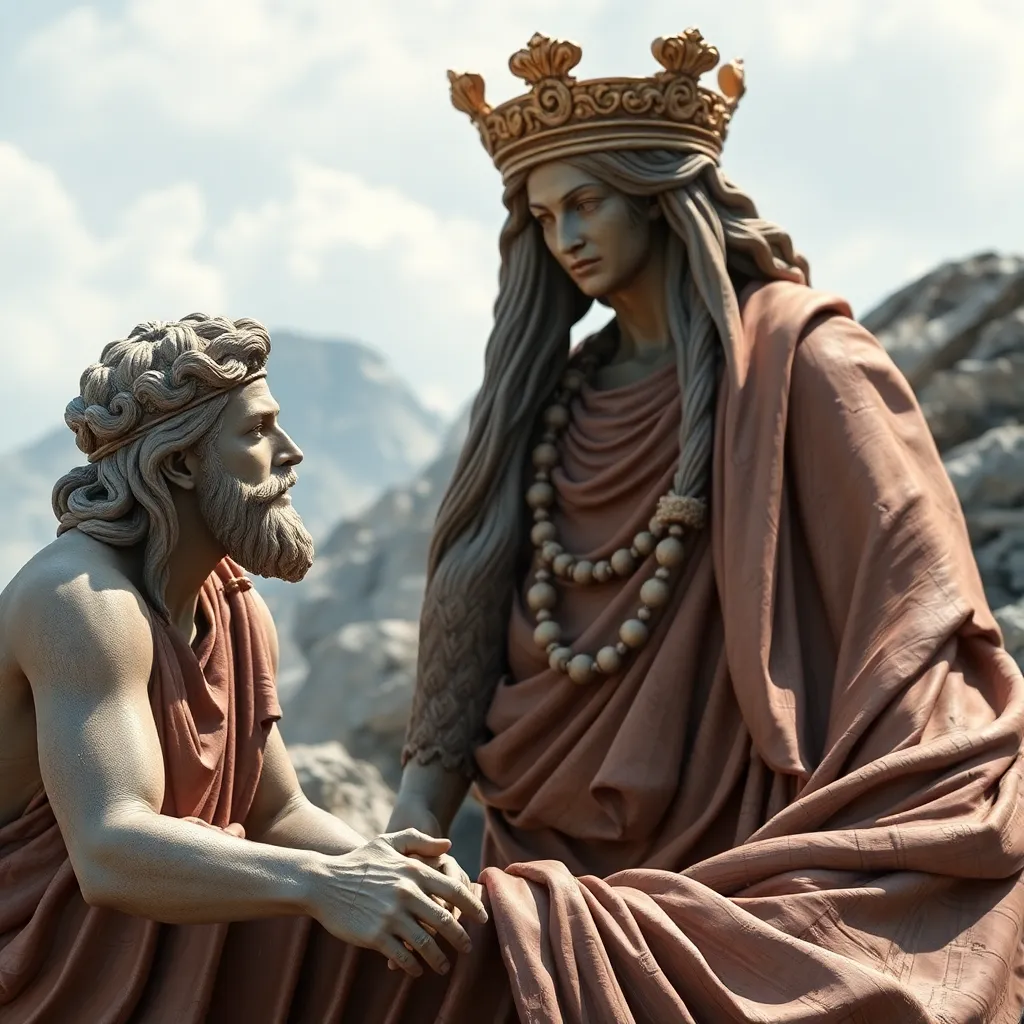The Role of the Mentor in The Odyssey: Athena’s Guidance
I. Introduction
“The Odyssey,” attributed to the ancient Greek poet Homer, is a seminal work in Western literature, chronicling the adventurous journey of Odysseus as he strives to return home after the Trojan War. This epic not only explores themes of heroism, loyalty, and identity but also delves into the nuanced relationships between characters, particularly the influence of mentors.
In the context of “The Odyssey,” mentorship emerges as a pivotal theme that shapes the protagonists’ paths and decisions. Athena, the goddess of wisdom and warfare, embodies this mentor role, guiding both Odysseus and his son Telemachus throughout their respective journeys. This article will examine how Athena’s mentorship is crucial in molding Odysseus’s character and facilitating his growth as a hero.
II. The Concept of Mentorship in Ancient Greek Culture
Mentorship in ancient Greece was not merely a formal relationship but a vital aspect of personal development and education. It involved the transfer of knowledge, wisdom, and skills from a more experienced individual to a less experienced one, often taking place in various domains including politics, philosophy, and warfare.
- Definition of mentorship: In the Greek context, mentorship involved guidance from a figure of authority, often a deity, elder, or wise individual.
- Importance of mentors: Mentors played a crucial role in shaping heroes, offering not only practical advice but also moral and ethical guidance.
- Athena’s role: As the goddess of wisdom, Athena exemplified the ideal mentor, providing counsel and support to heroes such as Odysseus.
III. Athena’s Initial Intervention: A Call to Action
Athena’s first significant act of mentorship in “The Odyssey” occurs when she motivates Telemachus, Odysseus’s son, to embark on a journey to find his father. This moment is crucial as it marks Telemachus’s transition from boyhood to manhood.
- Motivation: Athena, disguised as Mentes, encourages Telemachus to seek information about Odysseus, igniting his quest for identity and purpose.
- Rite of passage: Telemachus’s journey symbolizes a crucial rite of passage, pushing him to confront his fears and insecurities.
- Growth: Through Athena’s guidance, Telemachus evolves into a more confident and assertive individual, ready to take on the responsibilities of leadership.
IV. Athena’s Direct Guidance to Odysseus
Throughout Odysseus’s perilous journey home, Athena’s interventions are pivotal. She provides him with the wisdom and support necessary to navigate various challenges.
- Interventions: Athena assists Odysseus in numerous situations, including his encounters with the Cyclops and the Sirens.
- Key moments: Significant instances of her advice include guiding him to remain patient and strategic in his plans to reclaim his home.
- Impact: Athena’s mentorship enhances Odysseus’s decision-making skills, showcasing her influence on his leadership abilities.
V. The Transformation of Odysseus Through Mentorship
Odysseus’s character undergoes significant transformation throughout “The Odyssey,” largely influenced by Athena’s mentorship.
- Character development: Initially, Odysseus is portrayed as a cunning but somewhat reckless hero. Under Athena’s guidance, he becomes more thoughtful and strategic.
- Comparison: Before meeting Athena, Odysseus often relies on brute strength; after her counsel, he employs wisdom, patience, and diplomacy.
- Strategic thinking: Athena’s mentorship cultivates Odysseus’s resilience, allowing him to confront adversities and adapt to challenging circumstances.
VI. Symbolism of Athena as a Mentor
Athena’s attributes resonate deeply within her role as a mentor, symbolizing wisdom, strength, and protection.
- Attributes: Athena embodies qualities that are essential for effective mentorship, including strategic insight and moral integrity.
- Symbolic significance: Her frequent appearances throughout the narrative signify the importance of divine guidance in human affairs.
- Ideal mentor archetype: Athena represents the archetype of the mentor in mythology, illustrating the profound impact that wise guidance can have on an individual’s journey.
VII. The Wider Implications of Mentorship in The Odyssey
The theme of mentorship in “The Odyssey” extends beyond the relationship between Athena and Odysseus. It highlights broader themes of loyalty, justice, and identity.
- Broader themes: Mentorship is intertwined with the narrative’s exploration of loyalty, as Athena’s unwavering support embodies loyalty to Odysseus.
- Influence on other characters: Athena’s guidance also impacts characters like Telemachus and Penelope, shaping their arcs and reinforcing the importance of mentorship in their development.
- Contemporary relevance: The lessons drawn from Athena’s mentorship resonate today, emphasizing the value of guidance and support in personal and professional growth.
VIII. Conclusion
Athena’s pivotal role in “The Odyssey” underscores the significance of mentorship in shaping Odysseus’s journey and character. Her guidance not only aids in his navigation through challenges but also facilitates profound personal growth and transformation.
Reflecting on Athena’s influence reveals the enduring importance of mentorship in both personal and heroic development. The legacy of Athena’s guidance continues to resonate in literature and in modern contexts, serving as a reminder of the power of wisdom and support in overcoming life’s trials.




